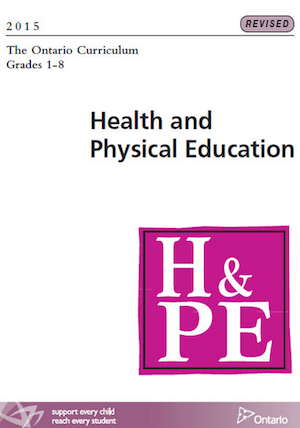The Tolerant And The Tolerated
by Alexandra Molotkow

Last week, theoretical physicist Lawrence M. Krauss published an essay with The New Yorker, responding to the release of Kim Davis, the county clerk jailed for refusing to grant marriage licenses to gay couples on religious grounds. He argues that religious principles are too widely indulged, even when they defy the law, and presents scientific thinking as a corrective:
I see a direct link, in short, between the ethics that guide science and those that guide civic life… Whenever scientific claims are presented as unquestionable, they undermine science. Similarly, when religious actions or claims about sanctity can be made with impunity in our society, we undermine the very basis of modern secular democracy.
It’s worth comparing his essay with Nicholas Hune-Brown’s excellent Toronto Life feature on the activists fighting Ontario’s new, more expansive sex education curriculum. The conflict is similar, but the people are a lot more sympathetic than Kim Davis.
“Left-wingers tend to dismiss the protests as the product of ignorance or Conservative party manipulation or fanatical lunacy,” Hune-Brown writes, but “the protests have been primarily led by new Canadians: Muslims and Sikhs from the outskirts of the city, Chinese evangelicals from Thornhill and Markham, Coptic and Russian Orthodox Christians from Scarborough and Peel.”
His interview subjects include parents who gave up good jobs and moved continents to give their kids a better education, community leaders with Liberal voting histories (Canada’s Liberal Party is not particularly liberal, but still not Conservative): people who are smart, worldly, and industrious, in other words. Of course, Christian activists can be smart, worldly, and industrious, but those qualities don’t adhere well to figureheads like Davis. Religious fundamentalism is associated with intolerance, while new Canadians — Canadians who are neither Christian nor atheist, more generally — are subject to it. And yet:
most of the protesters I spoke to knew exactly what they were fighting against: a curriculum that treats premarital sex as a pragmatic reality instead of a sin, that describes masturbation as normal and healthy, and that reflects without judgment the various sexual and gender identities that exist in this province.
Krauss says an idea that can’t bear scrutiny is no basis for policy, and he’s right. Education policy should be practical, aiming to promote well-being and minimize harm (spiritual harm is subjective, of course, while STI incidence rates are not). Which is why Ontario’s revised sex education curriculum is so well written: it’s based on empirical data around sexual health and development, and promotes the health and safety of all kids, including those who are queer and/or trans*, or whose family members are. (It also includes consent, which wasn’t part of the curriculum before.)
Safety is not an agenda; these are reasonable measures. But the expanded curriculum is more than reasonable — it does align with liberal secular values. Dearly held, and deeply felt values that are sacred for many of us, or at least as close to sacred as it gets. These are my values, and while I am not religious, my fervor comes, I think, from the same source — a very strong general idea of what is right, and what is beautiful, and what is home.
Abstractions are easy to agree on, and you don’t need to be religious to find beauty in religious principles at their barest: a belief in the inherent dignity of the person, for instance, or in love as a higher force. You might just prioritize a woman’s inherent dignity over that of her fetus, or hold that love between a man and a man is as high as that between a man and a woman.
If I hold these specific ideas as sacred, more than just reasonable, I feel I should try to understand, if not accommodate, those whose sacred is different from mine, because beneath it all there might be something pure. That’s tolerance, and as Hune-Brown points out, it’s much harder than we imagine it to be. Still, he writes an even piece, without losing sight of the point, which withstands scrutiny: keeping kids, all kids, free from harm.